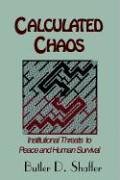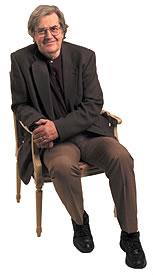My understanding of history, economics, and the laws of causation, have long led me to expect the present collapse of Western Civilization. I did not, however, anticipate the culture experiencing a free-fall into an awaiting black-hole. Like T.S. Eliot, I suspected Western society would end "not with a bang but a whimper." I envisioned a more gradual decline, one to which individuals could make the necessary adjustments in their lives that would lessen the impact and help to restore societal order.
The symptoms of our decline-and-fall are becoming increasingly evident even to those who, not so many years ago, regarded the outcome of an American Idol contest as the most pressing concern. A public-opinion-poll mentality substitutes for thinking in our modern world, creating a collective mindset that insists upon instantaneous answers to questions that few people are capable of asking. As the processes of causation play out the inexorable consequences of premises grounded in utter stupidity, a holiday for the expression of socio-economic fantasies has beset us. Hardly a week goes by without some twit — whether in or out of office — upping the ante in a bull market for runaway imbecility. Such efforts continue to produce an upswing in GDP ("Grotesquely Delusional Programs"), with politicians, academicians, and media hacks jostling one another — like San Francisco cable-car passengers — to be first aboard.
Murray Rothbard said, more than once, that there was nothing wrong about a person not fully understanding economics; but that those ignorant of economic principles ought not to be proposing governmental policies to govern economic activity. I have a hard time imagining Murray remaining calm as multitudes of men and women — with nary an understanding of economics — consult their Ouija boards for additional "solutions" to the calculated chaos generated by earlier practitioners of political mysticism.
 Calculated Chaos: Inst...
Best Price: $6.73
Buy New $41.95
(as of 05:30 UTC - Details)
Calculated Chaos: Inst...
Best Price: $6.73
Buy New $41.95
(as of 05:30 UTC - Details)
Unable to engage in the economic analysis that would both explain and provide a basis for resolving current crises — an approach that would call into question the entire logic of statism — the established order has been forced to seek other rationales for its authority. The New Deal gave us a proliferation of alphabetized federal agencies to do what Plato envisioned could be done, namely to plan for and direct the course of economic systems. But the study of chaos and complexity — along with the failed histories of state planning — have shown the fallacy of such thinking. As but one glaring example, ordinary people are discovering what Ron Paul and others have long observed: the vaunted, "independent" Federal Reserve system is not only incapable of regularizing the marketplace, but has been a principal agency for sowing confusion into our economic life.
The Platonic image of "philosopher kings" sitting atop pyramids of power and directing the lives of hundreds of millions of people to ill-defined ends, is increasingly questioned by those who produce the genuine order in society. Contrary to the basic tenets of all forms of statism, it is the spontaneous order generated by the individual pursuit of self-interests in a marketplace that accounts for both our liberty and material well-being. But in the marbled halls of state, as well as the sycophantic media and academic institutions that are well-paid to propagate a continuing faith in the cult of centralized power, the mantra is still heard, with only the content of the litanies modified to fit new situations. "Save the planet" now substitutes for "save democracy," but the premise of state power structures remains intact.
For a culture fast descending into history’s memory hole, and with the illusion of central planning no longer enjoying the intellectual support it once did, the established order has turned to the most desperate of measures: magical thinking enforced by undiluted, unprincipled coercion. No longer does the pretense of a scientific, rational basis for state planning prevail. Instead, resort is had to a kind of political sorcery — wrapped in the behavior-modification terminology of "stimulus." Trillions of dollars are given away to the corporate friends of those in power, and the system waits to see what happens. In what even the vice-president has termed a form of "guesswork," the state has revealed its underlying sophistry.
 Boundaries of Order: P...
Best Price: $8.25
Buy New $989.90
(as of 11:14 UTC - Details)
Boundaries of Order: P...
Best Price: $8.25
Buy New $989.90
(as of 11:14 UTC - Details)
In a society as thoroughly politicized as ours, the booboisie will always react with demands for the state to "do something," a mindset that gives the statists a continuing incentive to identify — or concoct, if necessary — fears that can be used to increase state power. When the civilization, itself, is in collapse, Boobus will insist that something — anything — be done, if for no other reason than to keep alive the illusion that the state is still in charge of events in the world, and can act to bring about desired results. An awareness that there is nothing the state can do to reverse the fate it has unleashed is as unavailable to most people as would be a physician’s assurances, to family members, that Uncle Willie’s terminal condition cannot be overcome with Dr. Quack’s Cancer Salve!
What else could be expected from political systems, whose only distinguishing characteristic is an enjoyment of a monopoly on the use of violence? "Reason" in the mouths of government officials, always reduces to no more than rationalizations to justify whatever it is the statists want to do. When the promised results of economic planning are not forthcoming, the troops — with their tanks, armored personnel carriers, attack helicopters, and machine guns — will be sent in to enforce the state’s will. At that point, Boobus may begin to learn what the German and Russian people learned, namely, that the alleged distinction between "law enforcement" and "national defense" has been but another deception employed to protect the establishment from its own people.
And so, we seem to have reached that stage where state violence has become its own raison d’tre. Social and economic problems are no longer considered within the sphere of authority of legislative bodies; congress is too slow to act when "we need action, now!," and so the president or governor takes over and appoints — without anyone else’s approval — "czars" to rule over various realms of human activity. My thesaurus advises me that synonyms for "czar" include "despot," "tyrant," "dictator," "slave driver," "duce," "oppressor," and "Fhrer." One news report informs us that some thirty-two "czars" have been appointed in a number of states.
 This is what we have become, a consequence that should reveal to all that scribbling words on parchment and calling them a "constitution" is ineffective to prevent any significant number of people from doing whatever they want to do. The response of some mainstream media’s "talking heads" to America’s embrace of "czars" has been not to question the statist power implications, but only to suggest calling such officials by a different name! As has become the norm in our world, if we use an alternative word to describe something (e.g., "waterboarding" instead of "torture") it becomes a different act.
This is what we have become, a consequence that should reveal to all that scribbling words on parchment and calling them a "constitution" is ineffective to prevent any significant number of people from doing whatever they want to do. The response of some mainstream media’s "talking heads" to America’s embrace of "czars" has been not to question the statist power implications, but only to suggest calling such officials by a different name! As has become the norm in our world, if we use an alternative word to describe something (e.g., "waterboarding" instead of "torture") it becomes a different act.
With Boobus having learned his catechisms about health-care costs, and the terrible-of-terribles attending "climate change," might we expect some of these "czars" to get together and plan a solution to both? Perhaps we shall soon be informed that each person produces approximately 2.3 pounds of carbon dioxide per day, an amount that translates into 2.5 billion tons of carbon dioxide per year for all six billion humans. Perhaps people could be euthanized at age 65 — when most have become economically nonproductive, and increasingly costly drains upon Social Security and the health-care system — a result that would greatly reduce their production of carbon dioxide. While such a program would exempt the philosopher-kings from its operation, the next generation of Boobus — unfamiliar with both the philosophically-principled and spiritual nature of what it means to be human — could probably be counted upon to embrace it. After all, what denizen of our brave, new dehumanized world could resist a series of television commercials showing a polar bear on its small patch of ice?






